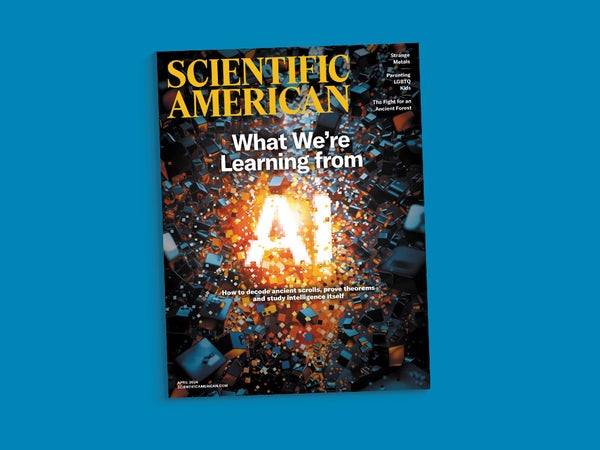New Insights from AI, Strange Metals and Parents of LGBTQ Kids
AI has deciphered ancient texts, learned new math and provided new ideas about human consciousness
Scientific American, April 2024
Artificial intelligence is finally starting to live up to the second half of its name. You’ve probably heard a lot of buzz about large language models lately—the text-producing AIs that can spit out fluent essays based on the books and articles and other data they’ve been trained on. They may sound smart, but on closer inspection, they are full of biases and make things up (you may know someone who does something similar). In this issue, we present some of the more interesting new insights from AI research.
The eruption of Mount Vesuvius in C.E. 79 destroyed the Roman towns of Pompeii and Herculaneum, but it didn’t quite destroy a library full of scrolls, which was found in 1709. Scholars tried to unroll and read the charred papyrus, only to destroy the scrolls in the process. Writer Tomas Weber reports on a contest to use AI to decipher the ancient Greek text. The artifacts posed problems that only machine learning could solve. Now researchers have used AI to rediscover a long-lost philosophical passage about pleasure.
The quest to make AI even more intelligent is advancing our understanding of human intelligence, as author and Scientific American contributing editor George Musser tells us. According to one theory, consciousness is what makes sense of inputs and analyses from various brain regions, a kind of workspace for solving problems. As AI advances, it is using and testing theories about how the different parts of the mind collaborate.
On supporting science journalism
If you’re enjoying this article, consider supporting our award-winning journalism by subscribing. By purchasing a subscription you are helping to ensure the future of impactful stories about the discoveries and ideas shaping our world today.
AIs are now capable of solving…
Read the full article here







